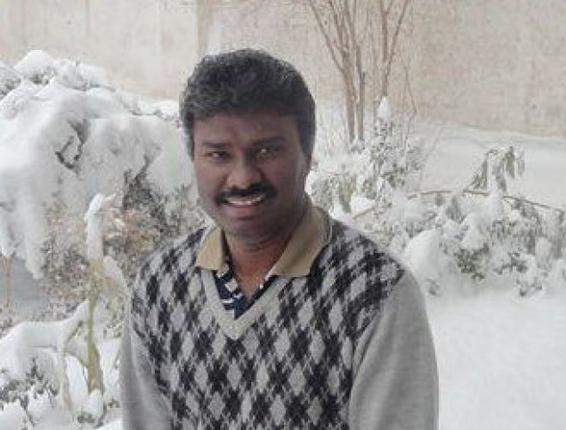Priest Released by Taliban, Thanks God and PM Modi
Fr. Alexis Premkumar Antonysamy
NEW DELHI: Jesuit priest Fr. Alexis Premkumar Antonysamy -- captured by the Taliban in Herat over eight months ago -- has returned to India, landing in New Delhi on Sunday. “God has saved me, I thank him first. It is because of [Prime Minister Narendra] Mr. Modi I am back in India,” Fr. Premkumar told the media on his arrival.
Although the Ministry of External Affairs (MEA) has provided scant detail, declining to comment on whether a ransom was paid to secure the priest’s release, a statement says that the release was secured after it was “pursued by our leadership, including at the highest levels [by] the Prime Minister.”
The news was broken on Twitter by Prime Minister Modi’s handle in a series of tweets.
The first tweet, posted on Sunday, simply said, “Will soon share some good news with all of you.”
This was followed by a Tweet that read, “Delighted at securing the release of Indian Jesuit priest Father Alexis Prem Kumar from captivity in Afghanistan” and another reading, “Have spoken to Father Alexis Prem Kumar. Informed happy family of Father Alexis Prem Kumar of his safe return after 8 months in captivity.”
The priest -- the country head of educational charity Jesuit Refugee Service -- was abducted in Herat in June 2014, whilst visiting a school for Afghan refugee children from Iran and Pakistan. "The Government of India, especially the External Affairs Ministry, has made a lot of effort to take care of me, to console me," Father Kumar said.
Father Kumar’s abduction was the first such incident involving an Indian national since the kidnapping and beheading of Ramankutty Maniyappan, a 36-year-old driver working with the Border Roads Organisation on the Zaranj-Delaram highway project. In 2003, two engineers working on a road project were abducted, but later released.
News of Father Kumar’s abduction followed an attack on the Indian consulate in Herat ten days earlier on May 23. All four attackers were killed and no Indian was injured. No group claimed responsibility for the attack, but the spotlight fell on an Afghanistan-based group Ansar al-Tawhid that had posted a video online on 17 May vowing to attack India. The Afghan President at the time, Hamid Karzai, however, blamed the Pakistan-based Lashkar-e-Toiba for the attack.
Herat is located at the Afghanistan-Iran border and is considered relatively secure. However, in September 2013 Taliban gunmen had launched an attack on a United States consulate in the city. The gunmen failed to enter the consulate but the attack resulted in the deaths of four people.
India’s diplomatic presence in Afghanistan had been targeted on three occasions previously, with a 2013 bombing of the Indian consulate in Jalalabad killing nine people, including six children, and two attacks on the Indian embassy in Kabul in 2008 and 2009 killing a total of 75 people.





